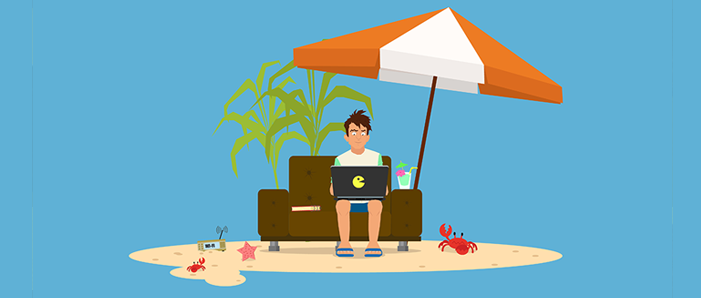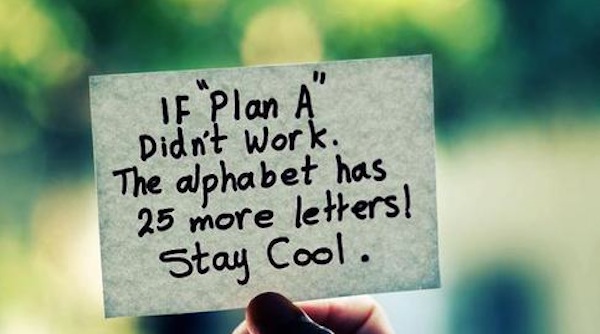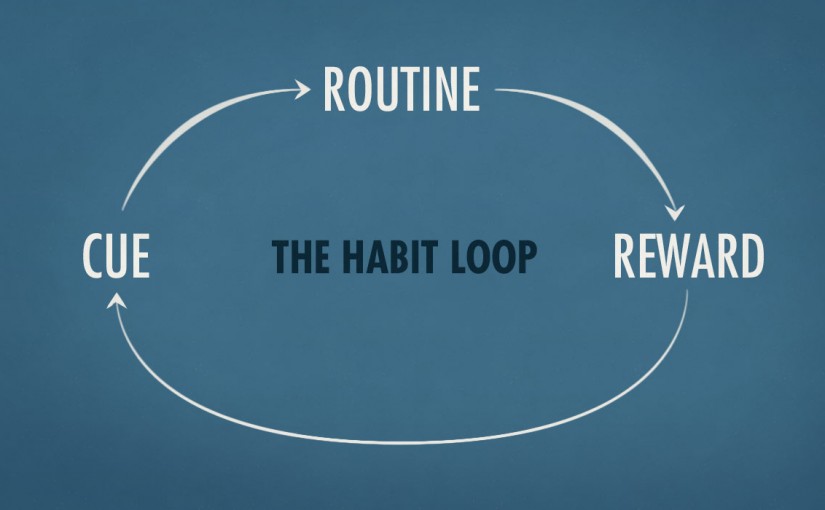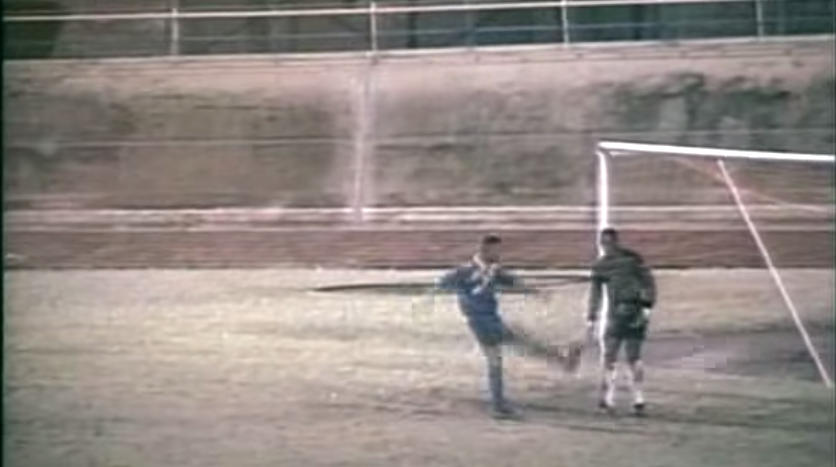Here is an observation. I regularly convert whatever I love into my lifestyle, rather than just a hobby or a passion. If it is not part of my lifestyle, then I most probably don’t like it enough and will eventually give up on it. Continue reading Is it your hobby, passion or lifestyle?
Harikrishna Natrajan
Here are Harikrishna Natrajan's blog posts.
A year of freelancing: What I learnt
It was just after the Diwali of 2015 that I quit my regular job and started software freelancing. Since then, my life has taken a different turn. While at work, I have been coding, taking calls, documenting, improving, improvising and deploying projects. When not working, I am travelling, trekking, cooking, reading, watching documentaries, running, bicycling and learning a lot of new skills. It has been a wonderful year, one of the best in my life. In this post, I am listing out what I learnt while sailing through the year. Continue reading A year of freelancing: What I learnt
Momentum & Inertia: How to start things & get them done
In physics, we learn about a phenomenon called inertia. It means that a moving body continues to move at the same speed in the same direction or a stationary body continues to be stationary, unless someone does something to change that. Physicists have also framed a measurement system to measure the inertia of a body. This measurement is called the momentum. Putting a number to momentum is useful for letting us know just how much work must be done in order to make the body do something different than what it is doing now. However, for the purposes of English language, inertia and momentum are often used as opposites. The word inertia is used to describe a body not wanting to move and momentum describes a body not wanting to stop. The common ground for both is that they resist change.
How does this relate to human behaviour and getting things done? Turns out the human body and mind also show signs of inertia and momentum. The human body does not like sudden changes in movement and the human mind does not like sudden changes in behaviour. We can use these two facts to our advantage to start things off and get them done. I also later discuss when NOT to use the effects of momentum, since in certain cases momentum can build behaviour like addiction and inflexibility. Continue reading Momentum & Inertia: How to start things & get them done
The silver lining behind every dark cloud
When I was in the third standard in school, we had a story about a wise man who tells his king that everything happens for the best. Then one day, the king accidentally cuts off a finger and much to his rage, hears the wisdom from the wise man yet again. The king has the wise man thrown into the dungeons. However, while out hunting, the king comes in close encounter with a lion, rolls over and plays dead. The lion smells the wound on the finger and thinks that the king is dead and moves on. The king is relieved to see his life spared, ponders over what the wise man said and sets him free.
This is just one of the several stories heard since our childhood, teaching us that we should always look for the positive side in any negative situation, take the necessary learnings and move on, thankful that we are living another day in this wonderful life. Continue reading The silver lining behind every dark cloud
Understanding your body’s auto-pilot
Picture some of the following actions: Walking in your neighbourhood, solving 10 + 10, talking in your mother tongue, counting 6 oranges. Now imagine the following scenarios: Walking through a crowded railway station or airport, solving e2 cot 27.9, talking about science in a language that you cannot speak very well, counting 39 oranges. What difference did you notice between the two sets of situations?
If you pay close attention, you will notice that the amount of activity in the brain increases significantly during the activities in the second set. This is because those are situations that you are not used to being in on a regular basis. E.g. you may not even pay attention to your steps while walking through your neighbourhood, but while walking through the crowd of the railway station, you have to watch each step and be attentive. But if you are a regular commuter, even jostling through the crowd will become a habit. That exactly is the power of habits. Your mind runs in cruise mode when you perform activities as a habit and you will often find that it drifts into thoughts of its own while your body finishes the activity on its own accord. You can say that you are running on auto-pilot mode without thinking about it. Continue reading Understanding your body’s auto-pilot
Get more out of your reading
Let us go through an exercise. Consider all your reading sessions during your day. Factor in all that you read: blog posts, magazine & newspaper articles, social network posts, books, novels, just about everything. On a scale of 1 to 10, how satisfying do your consider your reading sessions? Do you come away from each reading session having learnt something new and looking at the world or your career in a different perspective? Are your reading sessions pleasurable and relaxing, making you want to read on and on? Or are they rather stressful, making you shake your head and ponder how terrible the world is? Continue reading Get more out of your reading
Power up with a rousing morning routine
Imagine the following scenario. You wake up in the morning with the alarm ringing in your ears. You know that you must leave for work in an hour or so. You brush quickly, take a bath and put together a quick breakfast, something minimal like a sandwich with jam and a quick cup of tea. The clock is ticking away and the rest of your morning is spent getting dressed as fast as you can and getting your office bag in order, while taking a few quick looks at your phone for new emails and updates. Finally you rush out of home hoping to catch your train / bus to work.
Now imagine that you wake up in the morning and spend a few moments to stretch and take a deep breath. You enjoy the view from your window and steadily start your next sequence of actions. You fix yourself a healthy breakfast rich in nutrients and have it slowly enjoying each flavour. You spend some lovely time with your loved ones. You take some time to work out, meditate and read a book. Then you get ready for the day. You transition from shut-eye sleep to complete wakefulness in small steps, fresh and ready to face the day. You become a healthier and better person day by day.
Which one of the above is you? Continue reading Power up with a rousing morning routine
The art of dabbling
We, as humans, certainly have a lot of hobbies. Some of us paint, some of us collect things, some of us travel and some enjoy things as connoisseurs. However, almost every human enjoys ‘dabbling’ in something at one point or the other. Hold on. What exactly is dabbling?
Let’s see. There are two ways to do anything that has methods. One way is to acquire as much knowledge about something as you can and then start doing it in tiny meticulous steps, making sure that everything is done right every step of the way. Another way is to find out about something as little as you can, then jump straight in with both your feet, learning on the go and enjoying the experience despite its flaws. This second method is what I call the art of ‘dabbling’. The term comes from ducks plunging head first into the water and paddling the surface of water! It is also used when a person tries out something with minimal research to see what works for him/her. Continue reading The art of dabbling
Why being open about your life’s flawed past makes you better
Lewis Howes is a former American football and handball player, and is now an entrepreneur and an author of The School of Greatness. He also has a podcast of the same name. He is looked upon as a super-hero in the States. In fact, he himself used to think of himself as an impenetrable super-hero who could supress his darkest emotions and put up a brave face when challenged by adversity. One freak outburst incident made him change his mind. At the World Domination Summit 2015, Lewis urges us to tear down the facade of iron-clad straight face and be more human and express our feelings. He advocates vulnerability. In his own beautiful worlds, “Don’t be a super-hero. Be a super-human.” Continue reading Why being open about your life’s flawed past makes you better
How to get your way by thinking out of the box
Big sports events are passionate, frenetic, dramatic and super fun. Sports also reveal the character of the participants. We come to know who is persistent and fit, who has nerves of steel and can rise to the occasion. At the same time, we see who can be magnanimous and who are lousy losers. We can learn a thing or two from big players in big events. Olympics, Tour de France, Super Bowl and the Football World Cup. So many things to observe & learn. However little did I know that the qualifying rounds for big events, where some of the smallest teams compete to try to make it to the big stage can teach some rather surprising and jaw-dropping lessons.
In this post, we will see how the national football team from Barbados thought completely out of the box and managed to qualify for Caribbean Shell Cup of 1994. Continue reading How to get your way by thinking out of the box










